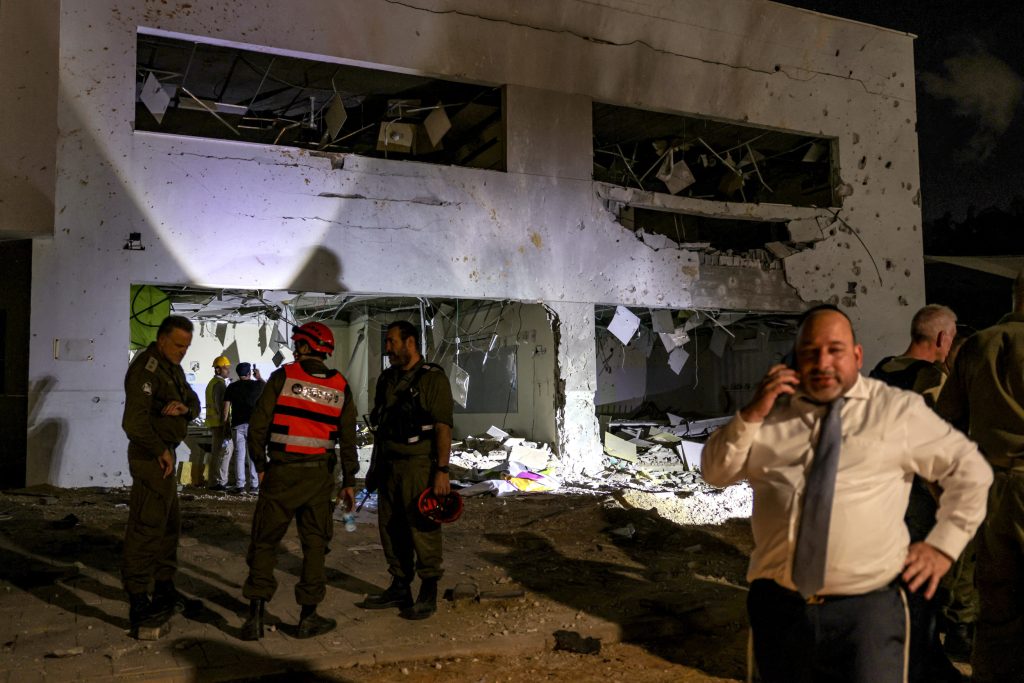In a letter obtained by Newsweek, a senior Iranian diplomat warned of a harsher attack against Israel in response to missile strikes launched by the Islamic Republic amid escalating tensions in the Middle East. The letter, written by Iranian Permanent Representative to the U.N. Amir Saeid Iravani, sought to justify the missile launches as an act of self-defense in response to what Iran perceived as aggressive actions by Israel, including attacks in Gaza, Lebanon, and Syria. The letter warned Israel against further aggression and threatened a swift and decisive response from Iran in case of future attacks.
Iravani called on the U.N. Security Council to intervene and halt Israel’s continued aggression and war crimes against Lebanon, Gaza, and Syria to prevent the situation from escalating into a full-scale regional war. The Israeli Defense Forces (IDF) reported no casualties from the missile strikes and stated that most of the missiles were intercepted, with damage being assessed. IDF spokesperson Rear Admiral Daniel Hagari vowed to continue striking powerfully in the Middle East in response to the Iranian missile attacks, and Israeli Prime Minister Benjamin Netanyahu warned that Tehran would pay for its actions.
The White House and Pentagon had warned of severe consequences in case of an Iranian missile strike against Israel, with indications that Iran was preparing for such an attack. Following the missile strikes, President Joe Biden praised U.S.-Israel military cooperation and stated that his administration was in active talks with Israeli counterparts regarding a potential response. The Iranian Mission to the United Nations stated that no notice was given to the United States prior to the response but issued a serious warning afterwards.
The escalating tensions in the Middle East were fueled by a series of incidents, including the unclaimed assassination of Hamas Political Bureau leader Ismail Haniyeh in Tehran, the wounding of Iran’s envoy to Lebanon, and the killings of Hezbollah Secretary-General Hassan Nasrallah and IRGC General Abbas Nilforushan in Israeli airstrikes in Beirut. Iran accused Israel of illegal actions and warned against any acts of aggression that threatened its national security and interests. The letter from Iravani highlighted the contrast between Iran’s actions following a period of restraint and Israel’s ongoing attacks in the region.
The ongoing conflict between Israel and the Palestinian Hamas movement, which began in October 2023, continued to spark new confrontations and prompted warnings of further escalation. The situation remained fluid as both sides prepared for potential responses to the recent missile strikes. The involvement of the U.N. Security Council and international efforts to deescalate the situation were crucial in preventing a full-scale regional war in the Middle East. Further developments in the conflict between Iran and Israel were expected as tensions remained high and both sides braced for potential retaliation.












